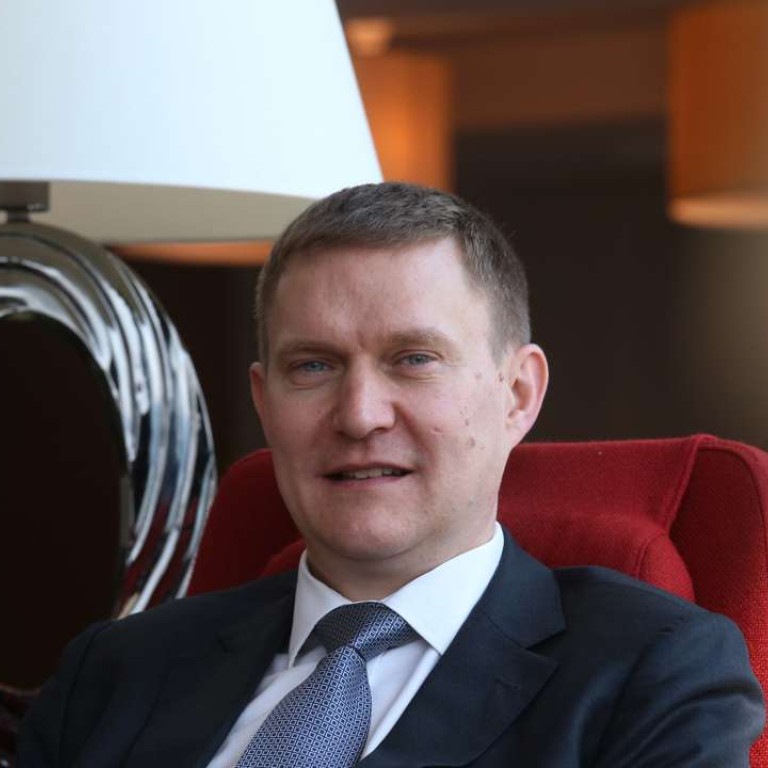
InterContinental Hotels posts strong China Q3 results despite slower global growth
Revenue per room growth in the greater China region rose by 0.9 per cent in the third quarter, up 1.8 per cent compared to last year
InterContinental Hotels Group (IHG) announced its highest-ever third quarter performance in the greater China region, led by growth in tier-one cities, the company announced on Friday.
The British-based global hotel company known for its InterContinental Hotels, Crowne Plaza, and Holiday Inn brands said its revenue per available room (RevPAR) rose by 0.9 per cent for greater China in the third quarter, increasing by 1.8 per cent from last year.
Kenneth Macpherson, chief executive officer for Greater China at IHG, told the Post that IHG’s presence is “very strong in the region” and will continue to grow.
“We continue to open hotels in tier one [cities],” he said, pointing to the recent launches of InterContinental in Shanghai near the National Exhibition and Convention Centre (NECC) and in Beijing’s Sanlitun area. “We have got strong distribution in many of the cities … so now we’re expanding, building out in tier two, tier three, tier four.”
IHG signed around 6,000 hotel rooms regionally in the third quarter, with 222 hotels in the pipeline at the half-year mark.
We have got strong distribution in many of the cities … so now we’re expanding, building out in tier two, tier three, tier four
Globally, IHG’s revenue per room growth slowed to 1.3 per cent in the third quarter, down from 2.5 per cent growth in the second and 4.4 per cent for all of 2015, largely from slumps in the oil industry affecting certain US states and security concerns hurting travel to countries such as France, Turkey, and Belgium.
“We delivered a solid performance in the third quarter,” Richard Solomons, chief executive of IHG, said in a press release. “While industry RevPAR growth has slowed, the fundamentals for the sector, and particularly for IHG, remain compelling.”
Hong Kong saw a single-digit decline in revenue per room amid a fall in mainland tourists to the city, and Macau’s RevPAR fell 15 per cent on “industry-wide challenging conditions,” the company said.
“The drop in the number of mainland tourists, that’s clearly had an effect on the [Hong Kong] market,” Macpherson said. “When we look at it … this is still a good market, we still believe in the Hong Kong opportunity, we’ve got a very significant presence here.”
IHG’s strength on the mainland has come from the strength in the luxury hotel sector, riding on trends toward individual consumption and leisure from China’s GDP and middle-class growth, Macpherson said. In particular, the hotel group’s luxury Hualuxe brand, geared specifically for Chinese consumers, has been a “big driver” for regional growth.
Hualuxe launched as a brand in 2012 and has three operating hotels in Nanchang, Yangjiang, and Haikou, with 20 more expected in the next three years.
“When you launch a brand, if your guests tell you they love it, it gives us a lot of optimism,” Macpherson said.
For the mid-scale hotel market, IHG launched the franchise model on the mainland for its Holiday Inn Express brand, which had 66 operating hotels mid-year and 77 hotels in the pipeline.
“We took the time to base the strength that we’ve got on Holiday Express, to look at the needs of the mainland Chinese owners, to create a model that’s tailored specifically for China,” Macpherson said. “Holiday Inn is the strongest mid-scale brand in China.”
In order to better cater to the China market, IHG announced in August a global partnership with Chinese online payment service Alipay by parent company Alibaba Group, which owns the South China Morning Post.
“It’s a programme of making sure that what we offer meets the needs of domestic and Chinese travelers,” Macpherson said.
There have been whispers of more consolidation in the hotel industry following the recent merger of Marriott International and Starwood Hotels and Resorts, now the largest hotel company in the world, and IHG’s acquisition last year of boutique hotel chain, Kimpton Hotels and Restaurants.
Macpherson declined to comment on future IHG mergers, but called Kimpton a “very successful acquisition.”
“We do see opportunities in our portfolio … but we will only pursue those where we are comfortable we can drive the value our shareholders expect,” he said.
When asked if IHG was concerned about how the Marriott-Starwood merger would affect regional performance, Macpherson said the company has a “proven track record” in the region that allows it to continue to be competitive.

